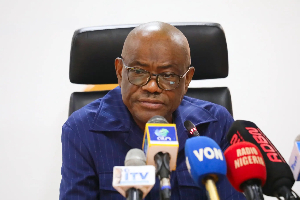Women are taking part in the governance and nation-building of their countries. In October 2019, the global participation rate of women at the national level was 24.5% compared to 8% in 2013 which is quite reassuring. However, in Nigeria, there is still a need for Nigerian women to have up to 50% representation in government.
The reason more women are needed in governance is that they have the expertise to aid in achieving a stronger and vibrant democracy. According to Mr Ban Ki-moon, the former Secretary-General of the United Nation, “When we empower women, we empower communities and nations and the entire human communities.”
A good number of women in Nigeria have made a significant impact on governance and nation-building. Historically, once women come together, they can make things happen because they understand their issues and can articulate them from a point of succinct comprehension.
Mrs. Fumilayo Ramson-Kuti was an activist and a political campaigner – 30 years ago, when there was a tax levy on women in Egba land, she coordinated a women’s union group after a long tussle with the colonial administration and traditional rulers.
Dr. Ngozi Okonjo-Iweala is another prominent woman in the global space. She served as Nigeria’s Finance Minister and also as Nigeria’s Foreign Affairs Minister. Currently, she is on the verge of becoming the first female and the first African Director-General of the World Trade Organization (WTO).
Asides from these two, a lot of women are making waves in society – not only in politics but also in managerial positions and businesses.
Factors that hinder women’s participation in politics
In 2016, there was a study by McKinsey that revealed that only 5% of women are CEOs of companies, 22% cabinet members, while 24% are elected to official positions in Africa.
More so, in the last election 2019 in Nigeria, there were up to 3000 women candidates across all the parties. However, only 64 women were elected and appointed into political offices. Looking at the figures, there is a clear indication that it is very low and needs to be addressed as the 2023 election approaches.
Here are the major challenges affecting women’s involvement in politics in Nigeria.
- Godfathers: In politics, godfatherism is a very big role. For women who are not able to build that network, it becomes a very big issue for them. To avert that, women are advised to create their own network in politics – support one another and assist each other in climbing the ladder, especially for those who are already in government.
- Raising funds: Election campaigns are very expensive to participate in.
- Religious factor/Traditional factors: A lot of people still feel women should be seen and not heard, because they are under a man and should be submissive. Cultural & religious barriers still exists, and it prohibits women from fully contributing to governance. The emergence of women as leaders does not need to subjugate their cultural and religious identities. Men & Women need to understand that it is only through joint decision-making and cooperation, that the society can thrive.
Here are what women can do to thrive in politics
For women to have 50% representation in government, here are what is needed.
- Those already elected must see themselves as a springboard and position themselves strategically, so they can increase the number of women in political offices.
- It is also important for women to leverage technology and use social media to enable them to build a community of women leaders/activists.
- Having already announced the date for 2023 election, it is imperative that women start preparing themselves ahead of the election and strategize on how to get more women elected to the government.
Finally, having a skill is very crucial for women who want to be community leaders.
Opinions of Friday, 30 October 2020
Columnist: nairametrics.com















